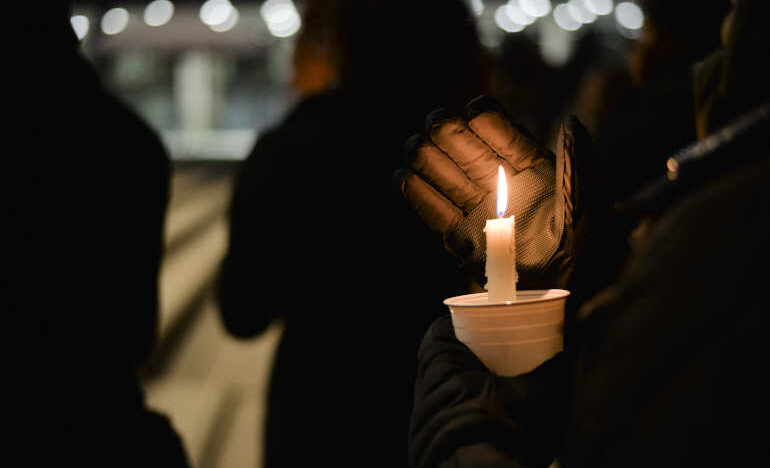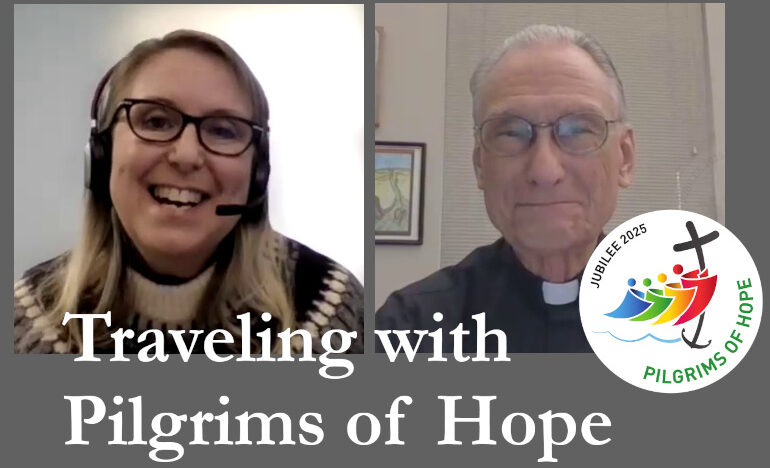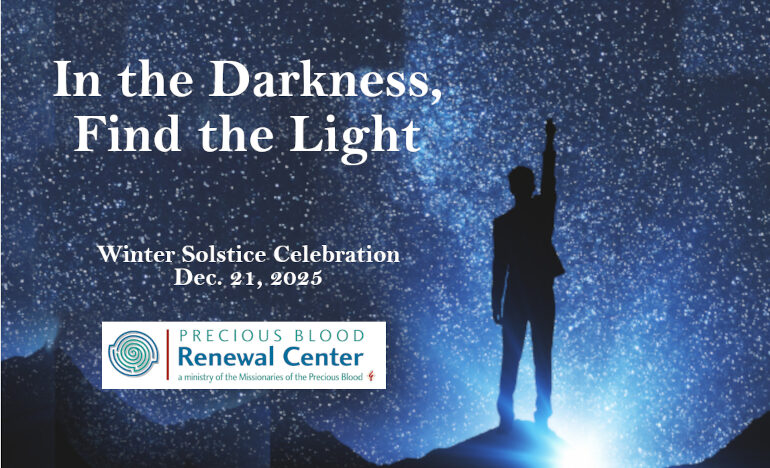The Church offers an antidote to radical individualism

By Fr. Ron Will
Read all the articles in our Respect Life Series.
Each human person “bears an indelible imprint of God,” and “society as a whole must respect, defend and promote the dignity of every human person, at every moment and in every condition of that person’s life,” Pope John Paul II wrote in his 1995 encyclical Evangelium Vitae (The Gospel of Life).
It is our responsibility, he continued, to care for and protect human life, especially the lives of the most vulnerable among us.
Who are those most vulnerable today? We will explore answers to that question through a series of discussions the Renewal Center is hosting on the five Saturdays of October with aim of broadening our view of “respect for life.”
John Paul II recognized the full range of threats against human life, from poverty and malnutrition to murder and war. He placed particular emphasis on threats to life at its beginning and end.
Pope Francis has captivated the world with his humility, warmth and compassion for each person. Vivid accounts of his tenderness for “the least of these” — the elderly, the imprisoned, those with disfiguring disabilities, the unborn, and many more — seize our attention. Why?
At the heart of each of these interactions is a truth that resonates in our hearts, revealing to us something essential to understanding ourselves and our purpose: “We are loved.”
Writing to the churches of England, Wales and Ireland in July 2013, Pope Francis said that “even the weakest and most vulnerable, the sick, the old, the unborn and the poor, are masterpieces of God’s creation, made in his own image, destined to live forever, and deserving of the utmost reverence and respect.”
We see Pope Francis living out the truth of these words in his actions.
We want to be part of a society that makes affirmation and protection of human rights its primary objective and its boast. Yet to women faced with an unexpected pregnancy, abortion is often presented as their only “choice.” A large percentage of children pre-diagnosed with Down Syndrome are never given the chance to live outside their mothers’ wombs. Elderly members of our families fear they will become burdensome, so they seek physician-assisted suicide. We see these and many more of our brothers and sisters pushed to the periphery.
These tragedies go directly against respect for life, and they represent a direct threat to the entire culture of human rights. Rather than societies of “people living together,” our cities risk becoming societies of people who are marginalized, displaced, and oppressed.
What can be done to prevent this? We must draw close to Jesus in prayer and in the sacraments. We must ask the Lord for the grace to see ourselves and others as he sees us — as masterpieces of his creation. When God created each of us, he did so with precision and purpose, and he looks on each of us with love that cannot be outdone in intensity or tenderness. We must look at ourselves and at others in light of this truth and treat all people with the reverence and respect they are due.
The Church’s antidote to an individualism that threatens the respect for human dignity is community and solidarity. Are we moved by the suffering of those without shelter? Do we seek to alleviate the fear, confusion, and panic that the women facing unexpected pregnancies may be experiencing? Do our hearts ache for elderly patients in nursing homes who feel abandoned and unwanted, having no one to visit them?
During our discussions Saturday mornings in October, we will meet people who have taken person responsibility of forming community and solidarity with people pushed to the edges of our society. We will meet:
- On Oct 2 individuals who have experienced abuse as the elderly and we will learn how to look for warning signs in our own homes and our local care facilities.
- On Oct 9 mothers who lost children through violent homicide a Precious Blood sister who ministers to them.
- On Oct 16 individuals who are working toward alternatives to the death penalty.
- On Oct 23 two priests who confront gun violence in their parishes.
- On Oct 30 founders of an organization that ministers to mothers who have lost a child through a miscarriage or stillbirth.
The discussions will be in person and live-streamed 10-11:30 a.m. central time. You must register to attend.
Our mission is to show each person the love of Christ. As uniquely created individuals, we each have unique gifts which we are called to use to share Christ’s love. We are continually given opportunities to do so in our interactions with the cashier at the grocery store, our spouses, children, friends and even the people we encounter in traffic. Each of these moments is valuable beyond our realization. We may never know how much a simple gesture of compassion may affect someone’s life.
We set aside October to pray particularly for respect for all human life. Let us never cease this urgent work. Please join us on the five Saturdays of October for discussions from 10:00 a.m. to 11:30 a.m. central time, as we explore different ways to take our respect for life a giant step forward.
Photo 68663953 © Nisarg Lakhmani | Dreamstime.com
[Fr. Ron Will, a Precious Blood priest and spiritual director, is a graduate of Catholic Theological Union and Creighton University’s School of Christian Spirituality. He has a special interest in helping form intentional disciples of Jesus, encouraging others to go spiritually deep-sea diving to explore a deeper relationship with God, and walking with people as they dive into the ocean of God’s mystery actually experiencing God rather than simply dipping one’s toe into the water.]
We’d Like to Hear From You!
We’d like to know what you think about this article. Send us a comment using the form below. Do you have a suggestion? Is there something you want to learn more about? Send us a note.
Related

Pilgrims of Hope, Episode 11 Walking with Young People
In this episode of the Jubilee Year video series, “Traveling with Pilgrims of Hope,” we talk with Teri Iverson, the Vocation Ministry Coordinator for the Sisters of the Precious Blood in Dayton, Ohio, about the joy and hope she finds in working among young people.

Video: Winter Solstice Celebration 2025
The Winter Solstice is the longest night of the year and the earth lies fallow. We are drawn naturally into contemplation. At the Renewal Center, we mark the Winter Solstice with a time of slow, quiet reflection and fellowship.
Categories
Assembling God's Puzzle Coffee with Padre Cooking & Spirituality Encounters of the 4th Kind Family Matters Guided Meditations Reflections on the Eucharsitic Prayers Spiritual Resources Taize Prayers Teach Us to Pray The Contemplative Life Traveling with Pilgrims of Hope Uncategorized Videos When you need a little help
